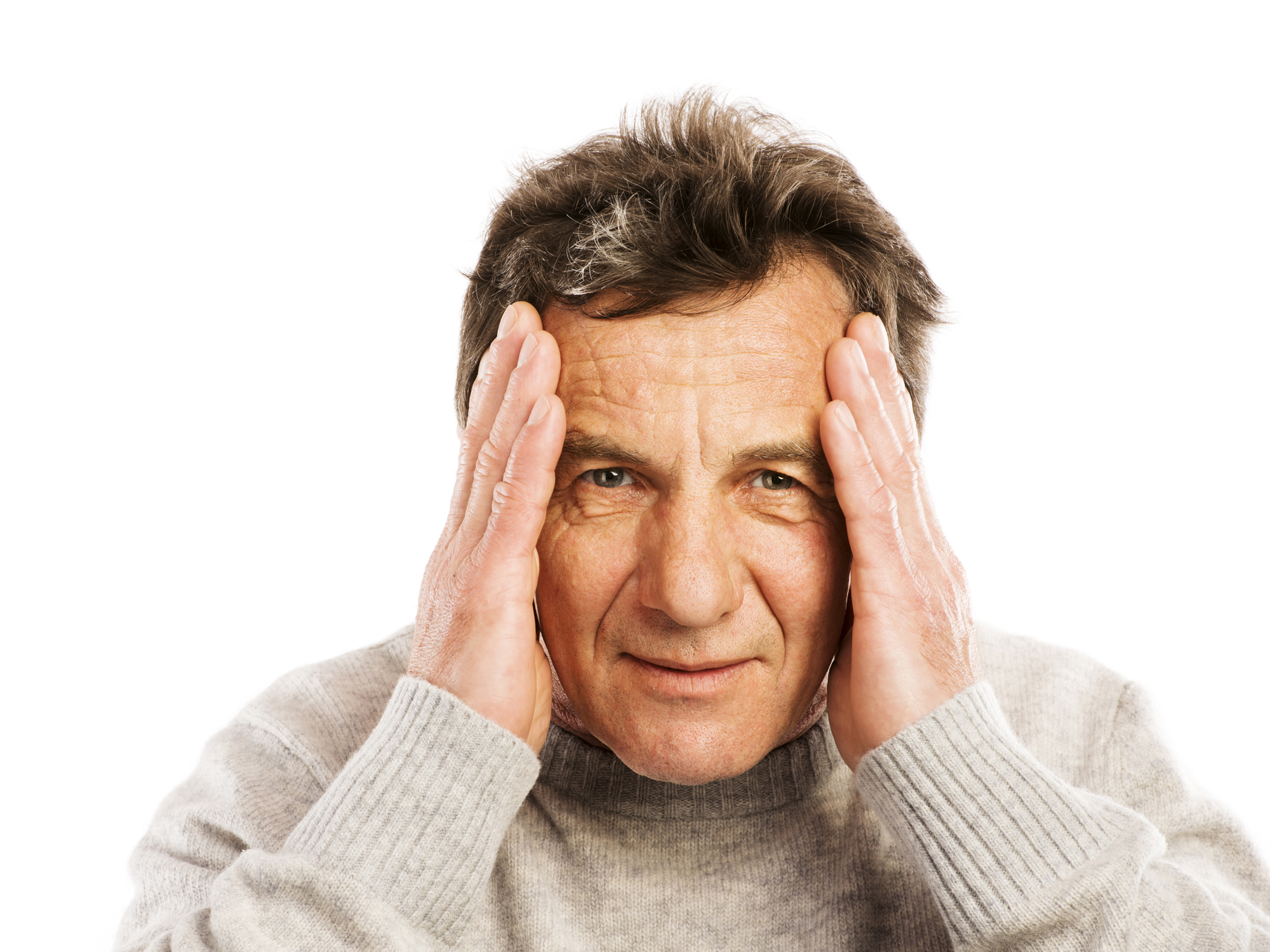Get Easy Health Digest™ in your inbox and don’t miss a thing when you subscribe today. Plus, get the free bonus report, Mother Nature’s Tips, Tricks and Remedies for Cholesterol, Blood Pressure & Blood Sugar as my way of saying welcome to the community!
The strange symptom that increases dementia risk 54 percent

Have you ever stood up too quickly and felt the world fade away around you?
Maybe you fainted. Maybe you snapped out of it before it got that far. But either way, you experienced a drastic drop in blood pressure.
There’s a name for a sudden drop in blood pressure that makes you feel faint, lightheaded or dizzy when you stand up. It’s called orthostatic hypotension. And it comes with obvious and less obvious dangers.
People with orthostatic hypotension are more likely to faint, fall and hurt themselves. That’s an obvious danger. They’re also more likely to get heart disease. That makes sense, since blood pressure and heart health are so closely connected.
Then there’s the huge harm it can do to your brain…
Because a recent study shows that orthostatic hypotension also carries a much greater risk for dementia — and much higher stroke risk, to top that off.
Lightheadedness now means brain trouble later
Researchers from Johns Hopkins Bloomberg School of Public Health found that having orthostatic hypotension at middle age means a greater risk of dementia and stroke decades later.
The study included 11,709 people who were an average of 54 years old. Researchers tracked their health for 25 years. And guess what?
People with orthostatic hypotension at the beginning of the study were 54 percent more likely to develop dementia than those without it.
They were also twice as likely to have an ischemic stroke, a stroke where blood stops flowing to part of your brain.
So, keep a close eye on how you feel when you stand up. A little lightheadedness may have more serious consequences than you thought.
Do you have orthostatic hypotension?
How do you know if you have orthostatic hypotension? Everybody gets lightheaded once in a while. When does it officially become a disorder?
Well, in the study, researchers diagnosed people based on blood pressure readings taken immediately after standing. If their blood pressure dropped at least 20 millimeters of mercury (mmHg) in systolic blood pressure or at least 10 mmHg in diastolic blood pressure, they received an orthostatic hypotension diagnosis.
You can take your blood pressure at home to see if you fit the criteria. Of course, if you regularly feel faint upon standing, head to the doctor for a checkup. Other health conditions and medications can cause orthostatic hypotension, so you’ll want to make sure your lightheadedness isn’t the result of another medical issue.
If you have orthostatic hypotension that isn’t caused by another health condition or medication, there are lifestyle changes you can make to balance low blood pressure. You can:
- Stay well-hydrated. Dehydration makes you vulnerable, so drink plenty of fluids and avoid dehydrating drinks like alcohol.
- Try compression socks. Poor circulation can cause orthostatic hypotension. When you sit for a long period of time, blood can pool in your legs and prevent proper blood flow to other crucial areas… like your brain.
- Eat salt. For people without a history of high blood pressure, eating more salt could improve the symptoms of orthostatic hypotension. Choose a healthy sea salt instead of a processed table salt.
- Go low-carb. If you have issues with low blood pressure after eating, switching to small, low-carb meals can prevent drastic blood pressure drops.
- Get checked for anemia and B12 deficiency. These common vitamin deficiencies can contribute to orthostatic hypotension. If you’re deficient, take a supplement, and you should feel better.
- Moving more can improve circulation and reduce the symptoms. So, squeeze in cardio and strength training regularly.
Editor’s note: While you’re doing all the right things to protect your brain as you age, make sure you don’t make the mistake 38 million Americans do every day — by taking a drug that robs them of an essential brain nutrient! Click here to discover the truth about the Cholesterol Super-Brain!
Sources:
- Orthostatic hypotension (postural hypotension) — Mayo Clinic.
- Orthostatic Hypotension: Management and Treatment — Cleveland Clinic.
- Feel lightheaded when standing up? You may have a greater risk of dementia — MedicalXpress.













